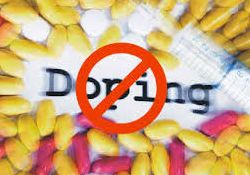Legislation, Lithuania, Markets and Companies, Medicine
International Internet Magazine. Baltic States news & analytics
Thursday, 25.04.2024, 07:04
Lithuanian Seimas adopts the law regulating control of certain doping substances
 Print version
Print version |
|---|
The law sets forth that certain doping substances will include the substances that act to either stimulate or inhibit the body’s physical and mental responses, namely, anabolic androgenic steroids; growth hormone; growth hormone secretion promoters affecting the muscle, tendon or ligament protein synthesis (degradation), vascularisation, energy utilisation, regenerative capacity or fibre type change; and erythropoietic-stimulating substances. The lists of these substances will be approved by the Minister of Health.
The production, processing, purchase, wholesale or retail sale, storage, internal transportation in the country, import or export of the said substances will only be allowed for healthcare, veterinary medicine, research, education, training and law enforcement purposes in line with the procedures established by law.
For medical purposes, natural persons are entitled, in line with the Law on Pharmacy, to importing and exporting from the Republic of Lithuania, receiving or sending by post medicinal products containing the said doping substances for personal use. Natural persons have the right to hold a maximum amount of the said substances not exceeding the amount designated for personal use for medical purposes.
The Government of the Republic of Lithuania or its authorised institutions have the right to exchange samples of certain doping substances with the competent authorities of the European Union Member States when this is needed in order to detect and investigate criminal offenses, carry out prosecution, or conduct forensic research and studies.
The law will enter into force on 1 January 2016.








 «The Baltic Course» Is Sold and Stays in Business!
«The Baltic Course» Is Sold and Stays in Business!

